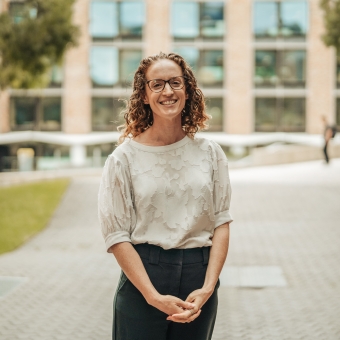Are you ready to make a meaningful impact while advancing your engineering skills? Engineering World Health (EWH) is a non-profit organisation whose mission is to inspire, educate, and empower the biomedical engineering community to improve health care delivery in the developing world. Since 2015, UNSW Sydney and EWH have collaborated to support hospitals and clinics in low-resource countries. Join Engineering World Health (EWH) in 2023 and after some intensive training you will become a biomedical equipment technician in Nepal. In collaboration with local students and hospital staff, you'll repair critical medical equipment, transforming lives in low-resource communities. Applications from all Engineering disciplines are welcome.
Project Snapshot
Project Information
Project Available: 2024 UNSW Engineering World Health Summer Institute (Nepal)
Duration: 10 December 2023 to 10 February 2024
Dates:
- Technical Training course: 10 December 2023 - 6 January 2024
- Hospital placements: 7 January 2024 - 10 February 2024
Cost: The approximate costs are as follows:
- Flights (~A$1,500)
- EWH fees (~A$6,600)
- Vaccinations and visas
- Extras
*New Colombo Plan Mobility Program grants (up to A$3,000 per student) and OS-HELP loans are available to domestic students. (Eligibility criteria applies.)
Criteria: Current engineering student (UG or PG) in good standing at UNSW Sydney.
Capacity: 15 UNSW students
If you have any additional questions or require financial assistance, please contact us via: challeng@unsw.edu.au
Student Information
The Engineering World Health (EWH) Exchange is an amazing opportunity for you to explore the concepts of biomedical design, collaboration, ethics and entrepreneurship, within the realm of engineering for low-resource environments.
Engineering World Health (EWH) is a US based non-profit organization whose mission is to inspire, educate, and empower the biomedical engineering community to improve health care delivery in the developing world. Since 2004, EWH has recruited skilled engineering and science students (undergraduates and graduates) and provided in-depth training for the installation and repair of hospital equipment in low resource countries. The training is based on a curriculum developed by EWH in partnership with the Duke University Developing Healthcare Technologies Laboratory.
An important part of the EWH’s programs is cultural immersion. By bringing together students from Australia and Nepal, EWH will facilitate a cross-cultural experience under circumstances in which travel is impossible. Students will learn about and then conceptualize design needs for low-resource hospitals and health care providers. While we cannot place students in-country, we can replicate the experience of learning about needs, finding solutions, and working cross-culturally. The motivation to train students to work on diverse multinational teams is to prepare them to innovate appropriate designs for cultures that are different from their own experiences.
Students who participate in meaningful global study experiences will be better prepared to apply their knowledge and skills to designing innovative products.
At least two in-country facilitators of EWH will be always present on-site in Nepal. These facilitators will be physically present with all students throughout orientation and training and will rotate between hospitals during the second half of the program. They will be accessible by phone 24 hours per day, 7 days per week.
On-site orientation: Upon arrival to Nepal, an in-country facilitator will provide an orientation to the program and country and will brief students on all information necessary for them to maintain their health, safety, and security while on the program.
The Summer Institute counts toward industrial training.
- All students - 30 days non-traditional Industrial Training
- For Biomedical, Electrical, Mechanical, Mechatronics, Telecommunications, and Computer Science students - Extra 15 days traditional Industrial Training.
For further enquiries, please contact the Engineering Education Team at challeng@unsw.edu.au
Conditions apply to receive Non-Traditional Industrial training for Student Projects. You will need to apply (Student Portal Stage 2) for this Project before you commence so the days can count towards your Industrial Training (IT) program requirement (maximum 30 days). Being a member of a Student Project does not guarantee that you will receive a Non-Traditional IT placement and should not be the only motivating factor for joining a team. See Student Information for more information.
